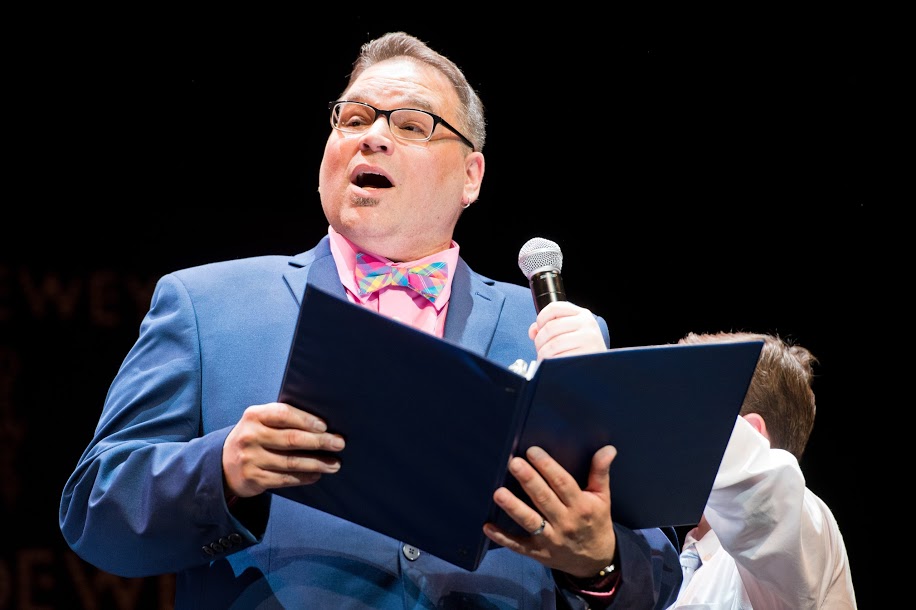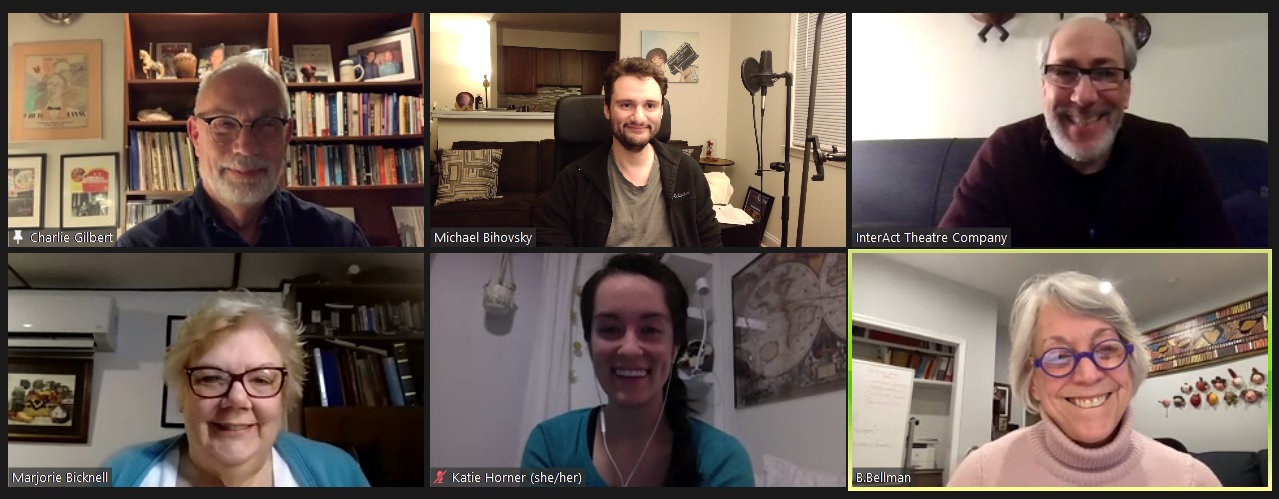Hi all! After twelve years of teaching singing and acting, and my 100% success rate at getting every one of my students into their first choice music/theater/drama program, I’ve finally compiled five of my favorite tips to help others make the most out of their college auditions.
This guide is catered to college auditions, but the acting advice contained is easily applicable to any other audition or performance environment. I hope you find this piece useful, and if so, feel free to share it with other people who might gain from it! We really are all in this together.
If the tips in this video really resonate, visit my Voice and Acting Lessons page to learn more about Michael’s studio. For in-person or internet consults, please visit my contact page.
Thanks, and here’s the transcript for all you visual learners out there. Happy audition season!!
-Michael
*TRANSCRIPT*
Hi, I’m Michael Bihovsky, I am a voice and acting teacher just outside of Philadelphia, and I want to talk to you about making the most out of your college auditions. A little background, I’ve been teaching privately for about twelve years, and during that time, I am proud to say that every student I’ve had of dozens who’ve studied with me for at least a couple months has gotten into their first choice. Now, I am terrifyingly aware that I am always just one student away from that not being true, but for now, it is true, so let’s enjoy it.
So why do my students do so well? Well for one thing, I’m very lucky to have taught some exceptionally talented people. But they’re up against other exceptionally talented people, and they get in. Why?
The most important reason is that when my students go in for a musical theater audition, they’re not just singing – they’re acting. That might seem like an obvious thing, but I’ve spent a lot of time on both sides of the casting table, and you’d be amazed how many singers there are out there who sound completely flawless, but they have almost nothing going on, they have no connection to what they’re saying, they’re thinking about vocal technique and the audition itself and just generally anything but the actual words they’re saying.
And then there’s another group of people, they’re a lot more engaged, but they’re doing something that I call “acting the intensity” rather than acting and exploring individual moments. They give a very intense and committed performance, but they mostly just choose one thought or emotion and stick with that throughout the entire piece. This is where real acting training is vital to bring out a performance that is honest, and nuanced, and memorable.
Now these days, almost everyone applying to a musical theater program has a voice teacher. And that’s fantastic, it is so important for your voice to be in the best shape that you are capable of. But very few people have an acting coach, especially one who’s willing to tackle musical repertoire. And that’s where I come in.
So, here a few things – and I have many more but I’ll try to keep this short – here are five acting tips to really blow people away at your auditions and to become a better actor overall, whether you’re auditioning or performing, and whether it’s a song or a monologue.
NUMBER ONE – Who are you talking to? You want to come up with two answers, one for who your CHARACTER is talking to in the context of the song, and who YOU could talk to in real life that would approximate the relationship of the characters. Because you talk very differently to your brother than your boss, or to someone you hate versus someone you have a crush on, so pick someone really personal and appropriate, and try to physically see them standing in front of you, and look them in the eye, and that will make your performance a lot more personal and a lot more real. A good trick that my acting teacher, Guy Stroman, uses in his classes is to practice your song while looking at an actual person in front of you, and I’m always amazed at what an immediate shift there is as soon as that happens. In addition to who you’re talking to, you can add on WHERE you’re talking, because the tone and body language will change if you’re one-on-one versus in a crowded movie theater. There’s no one right answer to this, so it’s really all about trying out all the possibilities, showing them to people you trust, and then making a strong choice.
NUMBER TWO – What do you want? What does your character want? Most songs and monologues have one overarching need, and then a bunch of smaller goals along the way. You need to notice those smaller goals and differentiate between them, because that’s really where a piece lives, is in those small details, and the more specific you get, the more universal it becomes. So for example, in the course of one song where you’re telling someone you love them for the first time, the overarching need is for reciprocation, but from one moment to the next you might want to kiss them or might want to stick your head in the microwave. I might be projecting about that microwave thing.
NUMBER THREE – After you’ve decided what your character wants, determine what tactics your character uses to get it, and allow that to help you draw an emotional map for the journey of your character. So if I want you to do something for me, there are several methods I can try: I can entice you, I can guilt you, I can beg, I can cry, I can trick. And each of those have emotional counterparts: love, excitement, anger, despair, jealousy. People are complicated, and especially during heightened emotional moments, we tend to think and feel a lot of things one after the other, or even at the same time. Good lyricists and playwrights will always give you the clues to put together for a real three-dimensional character. But ultimately it’s up to you to make the choices for your character. Make those choices, and OWN those choices.
NUMBER FOUR – THINK. This is honestly the most important, because none of the others exist without it. Think about the words you are saying as if you are crafting them and noticing them for the first time. A huge part of that is speaking in thoughts, not sentences, because in real life we don’t speak in punctuation. We start a sentence… and then we finish it when figure what – we want – to say. See what I did there? If not, rewind about ten seconds. Similarly, we will breeze right through a punctuation mark we’ll breeze right through it if we can hold a thought we just keep going. Rewind that one too if you need to. Now in singing, what that means is you don’t always have to obey the sheet music 100%. Now the composer in me is cringing as I say that, but let me just clarify that you should obey it 99% of the time, and I’m not talking about changing melodies or the basic rhythm. But if the music allows for it, you can STRETCH the rhythm from time to time, you can cut off notes early, or can you can hold them out a bit, if – and only if – you can come up with a good reason for your character to do so. Maybe your character’s overwhelmed, and CAN’T hold out the note. Maybe you’re really enjoying a particular memory, so you hold out the note, to hold onto that thought. Let the acting always be your guide.
NUMBER FIVE – What do YOU personally bring to the table? In an audition setting where people don’t know you, they can’t help but subconsciously read into you from your performances and from your audition selections, which means two things: first, when choosing material to audition with, try not to choose pieces that unapologetically feature obnoxious traits like arrogance or self-righteousness. Second, try to choose material and characters that you DO personally identify with, so that you don’t just become the character, but the character kind of becomes you. You meet somewhere in the middle. And then it’s okay for the auditioner to read into the character, because they are in fact reading into you, and a huge part of auditioning is social, so this is your chance to show YOU. And you don’t have to keep it light, there is not an artist out there who has not experienced some turmoil, and that’s fine, that’s honest, and that’s going to create some really interesting performances.
I’m going to leave it there even though I have way more to say, because I always have more to say, and not everyone wants to listen! So, if you like my tips, and if you want my help with an upcoming audition or performance, I do consults in the Philadelphia area. I also occasionally do consults on Skype or FaceTime. Ultimately I recommend that you find a really good in-person coach, but if what I’m saying really resonates with you, you can check out my website at michaelbihovsky.com – it’s in the video description – click on contact, and let me know what you’re up to! And please feel free to check out the rest of my channel, which is musical parody-based and not like this video at all. You can also subscribe by clicking on that button. Or possibly that button, I can’t keep track of YouTube.





I couldn’t resist commenting. Very well written!